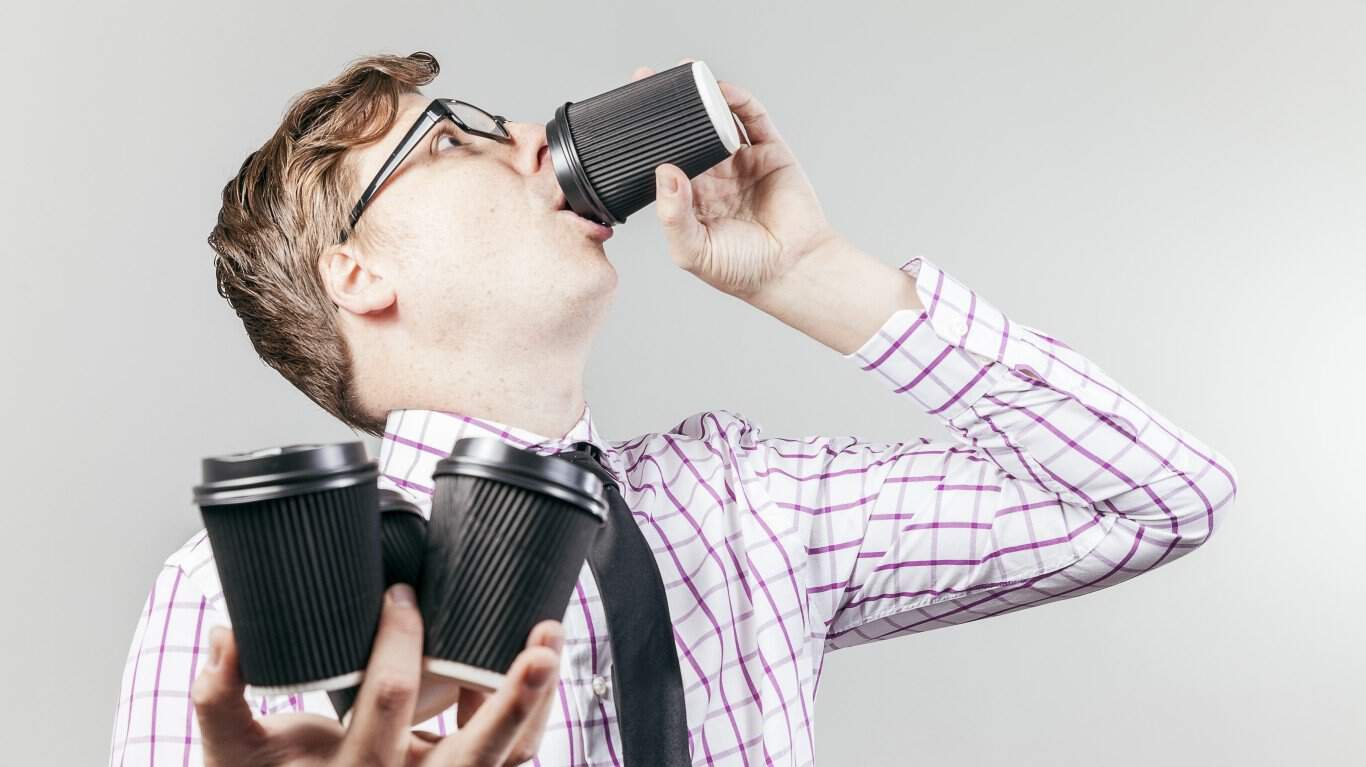The United States is the top consumer of coffee and it only makes sense that there are more than 38,000 coffee shops spread across the country. From the corner café or deli, and the various Starbucks or Dunkin’ Donuts shops to the multitude of local eateries and restaurants, it’s fairly safe to say that people love coffee. According to the National Coffee Association, not only do 66% of Americans enjoy their morning cup of joe but it’s one of the top beverage choices in the country.
But as we enjoy our daily caffeine habit, we often don’t think that there could be adverse effects on us. It may come as even more of a surprise to know that coffee, and the accompanying caffeine kick we may get from it, is a drug and a popular one at that. It is possibly the most widely consumed drug in the world. According to the American Migraine Foundation, in the U.S. alone, up to 90% of people in all age groups consume at least some caffeine daily.
Yet, drug status aside, the popular morning brew boasts plenty of health benefits. Regular coffee consumption is associated with a higher metabolic rate, lower risks of Type 2 diabetes, Parkinson’s disease, coronary heart disease in women, various nervous system diseases, and suiсide, as per the American Heart Association. In at least one study, caffeine was linked to a reduced risk of Alzheimer’s disease. (These are reasons to drink coffee for your health.)
As delicious as many of us think java beverages are, it may not be for everyone. If you find yourself adding extra cream and sugar just to have a cup, odds are, you don’t enjoy the taste of coffee but rather like the sugary additions that make it more enjoyable, which can negate the positive benefits. (Check out the biggest health myths ever debunked.)
There is a percentage of the population that enjoys multiple cups of coffee, with many having between three and five cups, daily. A few servings aren’t detrimental to your health, and while most adults can safely enjoy four cups of coffee, or up to about 400 milligrams of caffeine, according to the Mayo Clinic, anything more may be considered too much. Switching to decaf doesn’t necessarily mean you aren’t ingesting any caffeine, however, as even these choices contain some percentage of caffeine.
To determine signs that your coffee habit may be excessive, 24/7 Tempo reviewed the long list of outcomes associated with excess coffee consumption from publications in medical journals like the Lancet, policy research organizations like the American Heart Association and American Migraine Foundation, and government sources like the Centers for Disease Control and Prevention (CDC). If any of these sound familiar, it may be time to cut back.
You’re agitated

- You feel restless, anxious, and/or irritated
Multiple studies have linked caffeine to mood and emotional problems such as anxiety and depression. One study even suggests that people who consumed more than 1,000 milligrams of caffeine in one day showed virtually the same symptoms as people suffering from anxiety disorder.
You can’t sleep
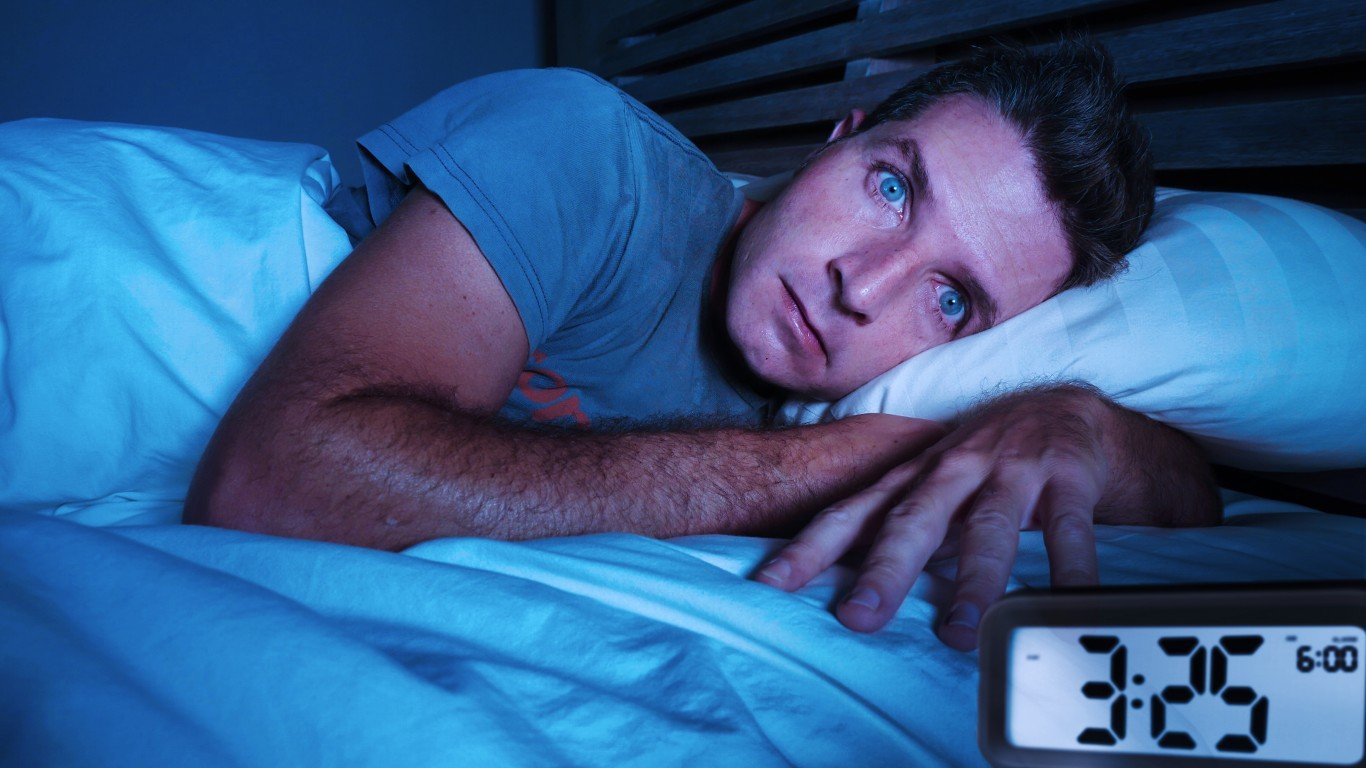
- It blocks sleep-inducing chemicals in the brain
We often grab a cup of coffee, or two, when we need to stay awake. As a stimulant, caffeine often gives many people a temporary feeling of being more alert. This is also why many caffeinated beverages like tea, soda, or energy drinks, are also popular when you need an energy boost.
According to the National Sleep Foundation, caffeine not only blocks sleep-inducing chemicals in the brain but it increases adrenaline production. Consuming six or more cups a day, which is considered excessive, may prevent some people from falling asleep — and the damage to the body when you do not get enough sleep can be serious.
You get stomach aches
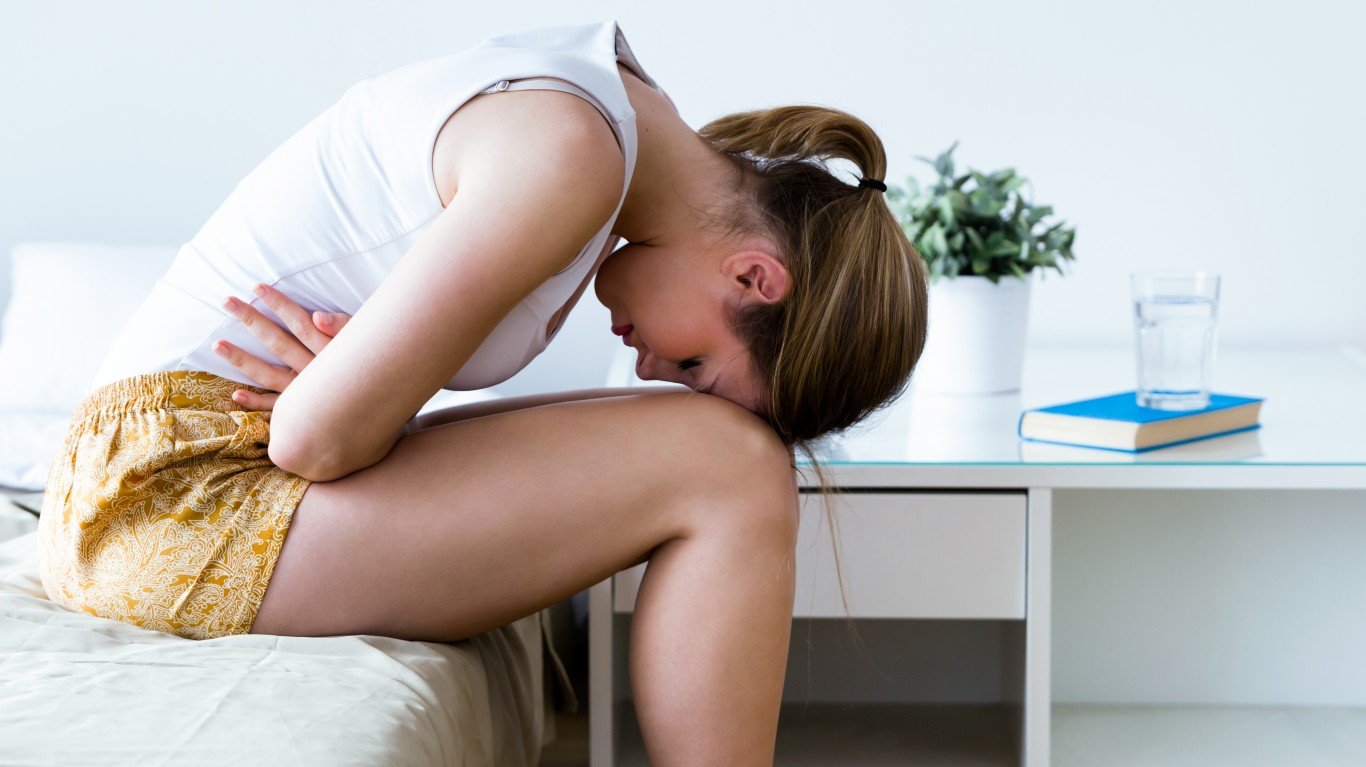
- Caffeine may stimulate molecular mechanisms that lead to the production of stomach acid
We don’t typically associate stomach aches and pains with coffee consumption but according to various research conducted by universities in Europe, caffeine may stimulate molecular mechanisms that lead to the production of stomach acid in stomach cells, causing stomach aches. The authors of the research say dark-roasted coffees may be a better choice because they contain a compound that reduces acid production.
You also get headaches
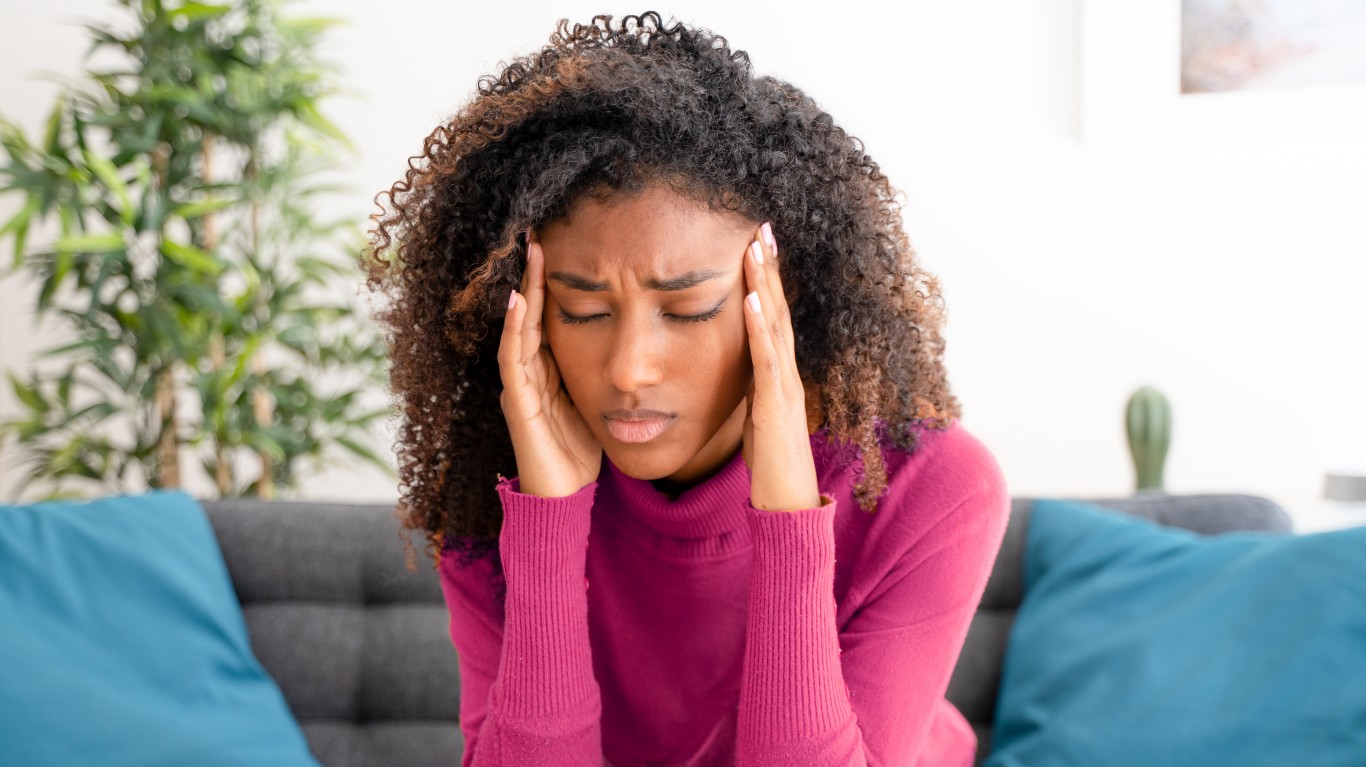
- High coffee consumption can inadvertently lead to dehydration
Often, we are advised to consume coffee to address our headaches and in some headache medications, caffeine is even a key ingredient. However, consuming too much can lead to excess urination, which in turn can lead to dehydration. Additionally, because of the addictive properties of caffeine, headaches can also be caused by cutting back on coffee consumption.
Your cholesterol is high
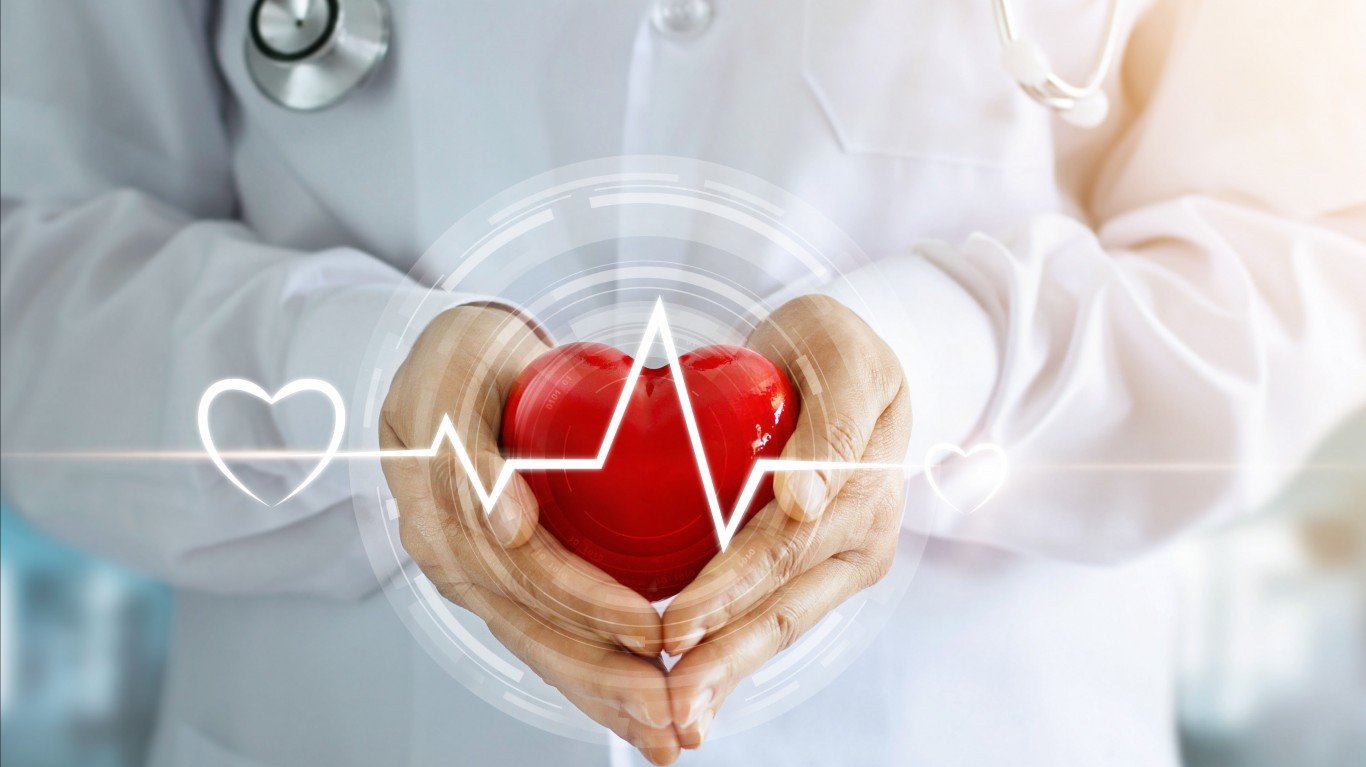
- Cafestol is a molecule found in coffee beans that elevates cholesterol
Caffeine is not the culprit in your cholesterol levels, rather, it is a molecule found in coffee beans known as cafestol. According to researchers from Baylor College of Medicine, this molecule elevates cholesterol by blocking a receptor that is important to its regulation and is “the most potent dietary cholesterol-elevating agent known,” according to Dr. David Moore, co-author of the study.
You have temporary vision problems

- You’re at an elevated risk of developing glaucoma
Because caffeine has been known to increase pressure in the eyes for a short period when enjoyed in moderation it is fine but it’s probably a good idea not to overdrink it, especially if you’re at high risk of glaucoma. Some research suggests that drinking five or more cups of caffeinated coffee a day may increase the risk of developing glaucoma, the Glaucoma Research Foundation notes. Caffeine may also cause a spike in blood sugar levels, which may translate to blurred vision.
Your blood pressure is high
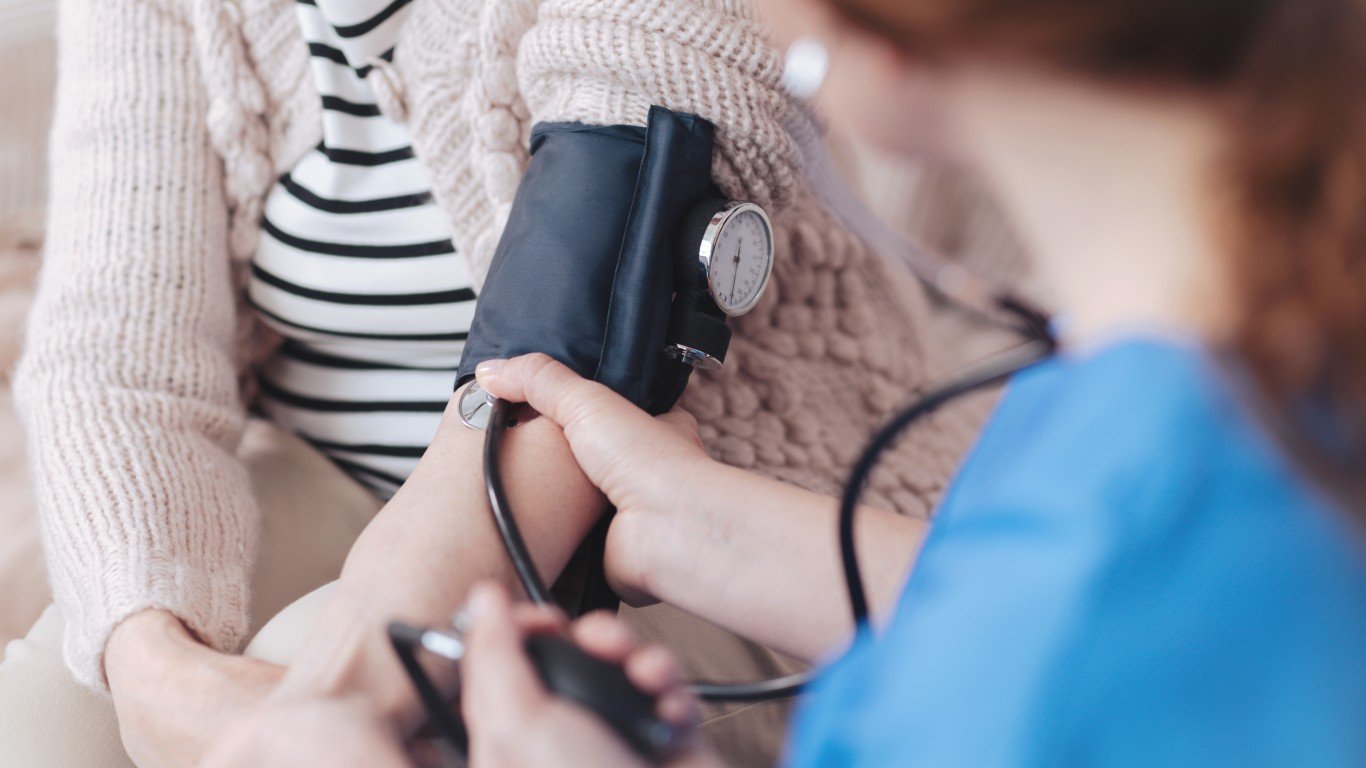
- Caffeine can cause a temporary spike in blood pressure
Medical professionals are unsure why caffeine affects blood pressure but one theory is that it blocks the production of a hormone that plays a role in the widening of the arteries. Another hypothesis has to do with caffeine’s effects on the adrenal glands. These glands release adrenaline, a hormone that causes a rise in blood pressure.
You have stained teeth
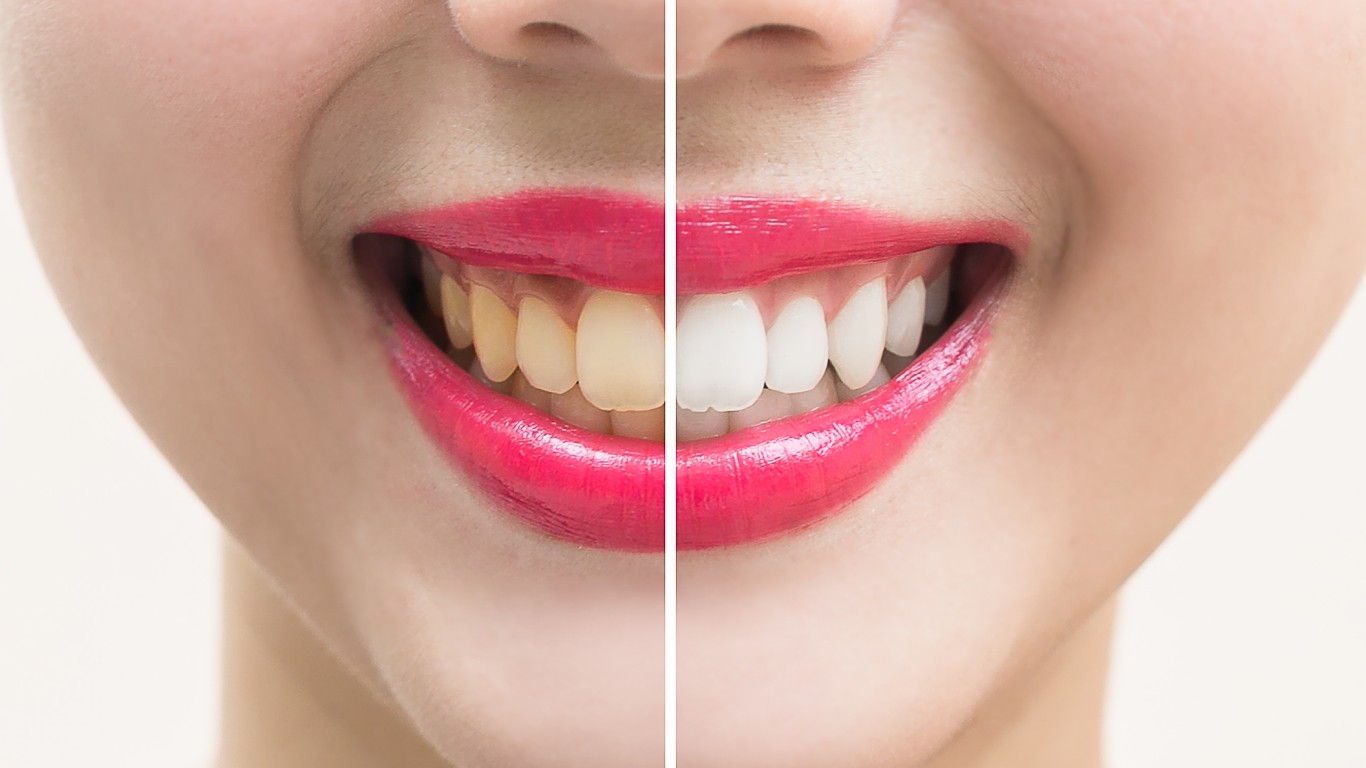
- Coffee gets trapped in your tooth’s enamel
Drinking large amounts of coffee (and tea) every day can lead to discolored, yellow, or stained teeth. This unpleasant side effect even has a name – coffee stains – and occurs when coffee gets trapped in the microscopic ridges of the enamel, the outer protective layer of the tooth, forming stains.
You’re very tired when you don’t drink coffee

Woman Eye Fatigue And Pain. Tired Working On PC
- Excessive caffeine intake may deplete energy levels
Coffee is often thought of as an energy boost, a beverage we drink when we want to stay awake. However, chronic and excessive caffeine intake may deplete energy levels after the initial effects wear off. Researchers found excessive daytime sleepiness to be common the day after energy drink consumption. Caffeine triggers the sympathetic nervous system (fight or flight response), which is okay in the short term but when it occurs repeatedly, the body gets no chance to rest, leading to fatigue.
You start to hear things
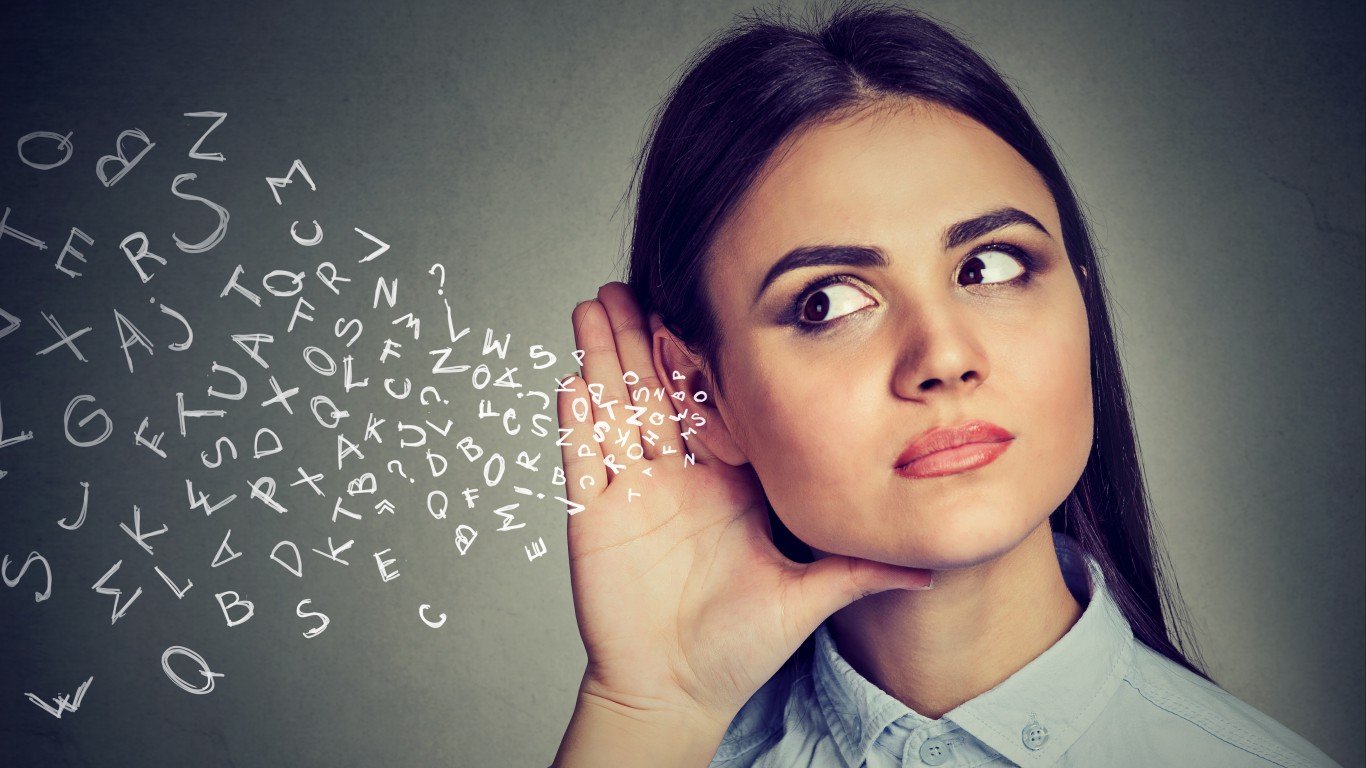
- The extra boost of cortisol from caffeine may be linked with an increased tendency to hallucinate
Five cups of coffee a day or more in people who also feel high levels of stress may cause them to hear things, according to a study conducted by Melbourne’s La Trobe University. The study was initially researching why people who were never diagnosed with schizophrenia were showing symptoms of the condition.
You become lazy

- Caffeine interferes with certain chemical processes in the brain
A nine-month-long study of 40 male rats conducted by researchers at the University of British Columbia, Canada, suggests that coffee may result in workers getting lazier. Researchers say the findings may apply to humans as well, especially people who use stimulants to stay alert for a long period.
You feel jumpy
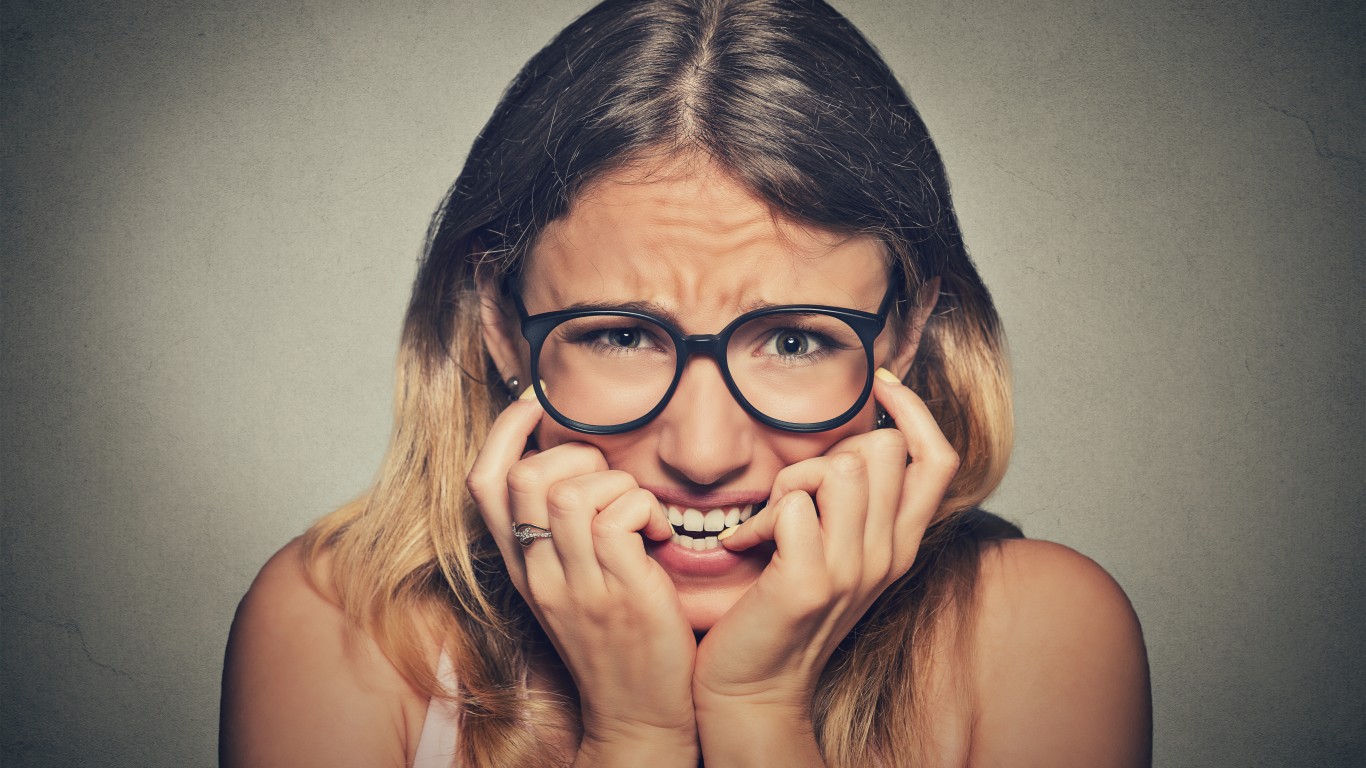
- Caffeine stimulates the nervous system
People drink coffee to boost their alertness and when caffeine is taken in high enough amounts, jittery sensations are not uncommon, and people may feel jumpy, according to the FDA. When your nervous system ingests excessive caffeine, it can lead to jitters and tremors, which are often referred to as “caffeine jitters” or “coffee nerves”.
You get muscle spasms

- Stimulants can cause any muscle in the body to twitch, and coffee is a stimulant
Although there isn’t a definitive link between caffeine and muscle cramps yet, some research shows a possible connection. Caffeine triggers the nervous system, which controls the contraction of skeletal muscle through nerve cells. According to research out of Radboud University Nijmegen Medical Centre in the Netherlands, when consumed in high amounts, caffeine can cause involuntary spasms of muscle fibers across the body.
You have diarrhea
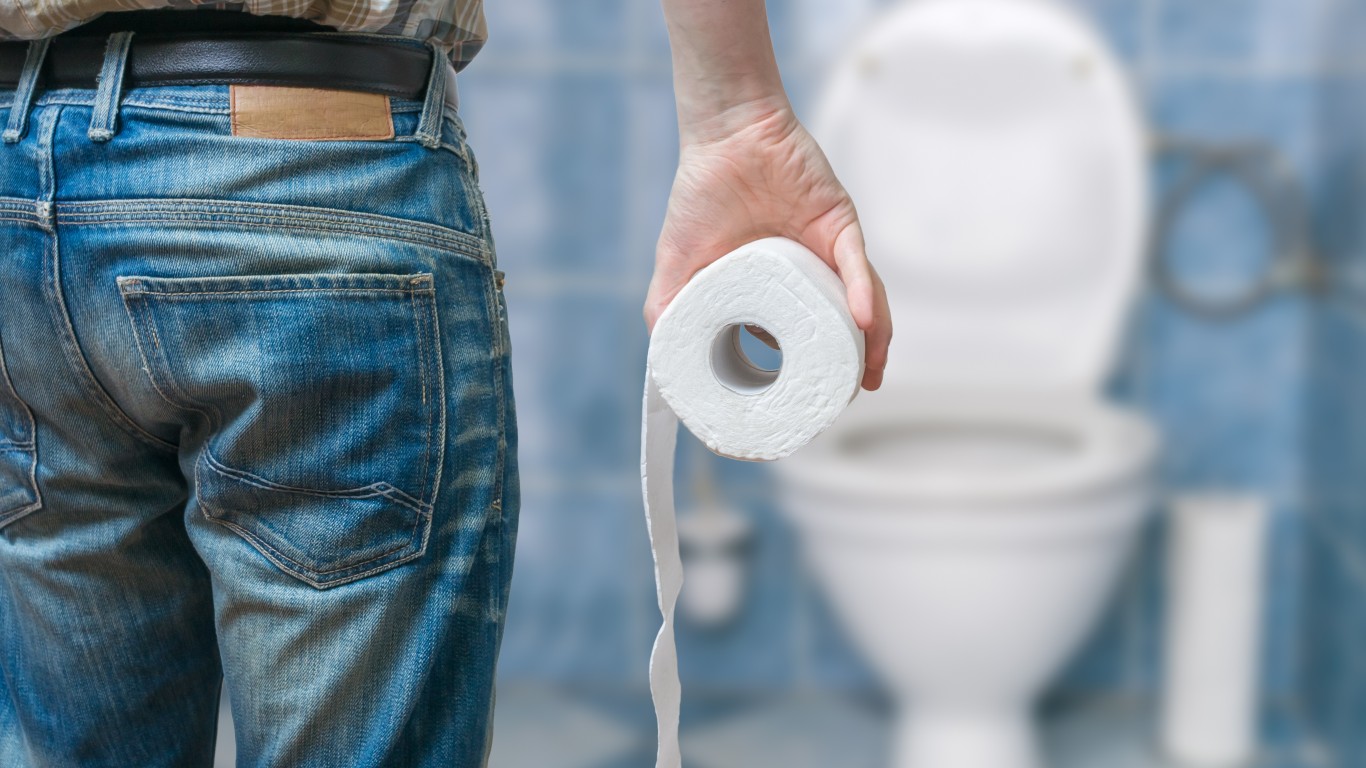
- Caffeine can lead to digestive issues
Possible side effects of drinking too much coffee can be diarrhea. Coffee, and other beverages that have caffeine, may have a laxative effect in some people if you drink more than three cups a day.
You have iron deficiency
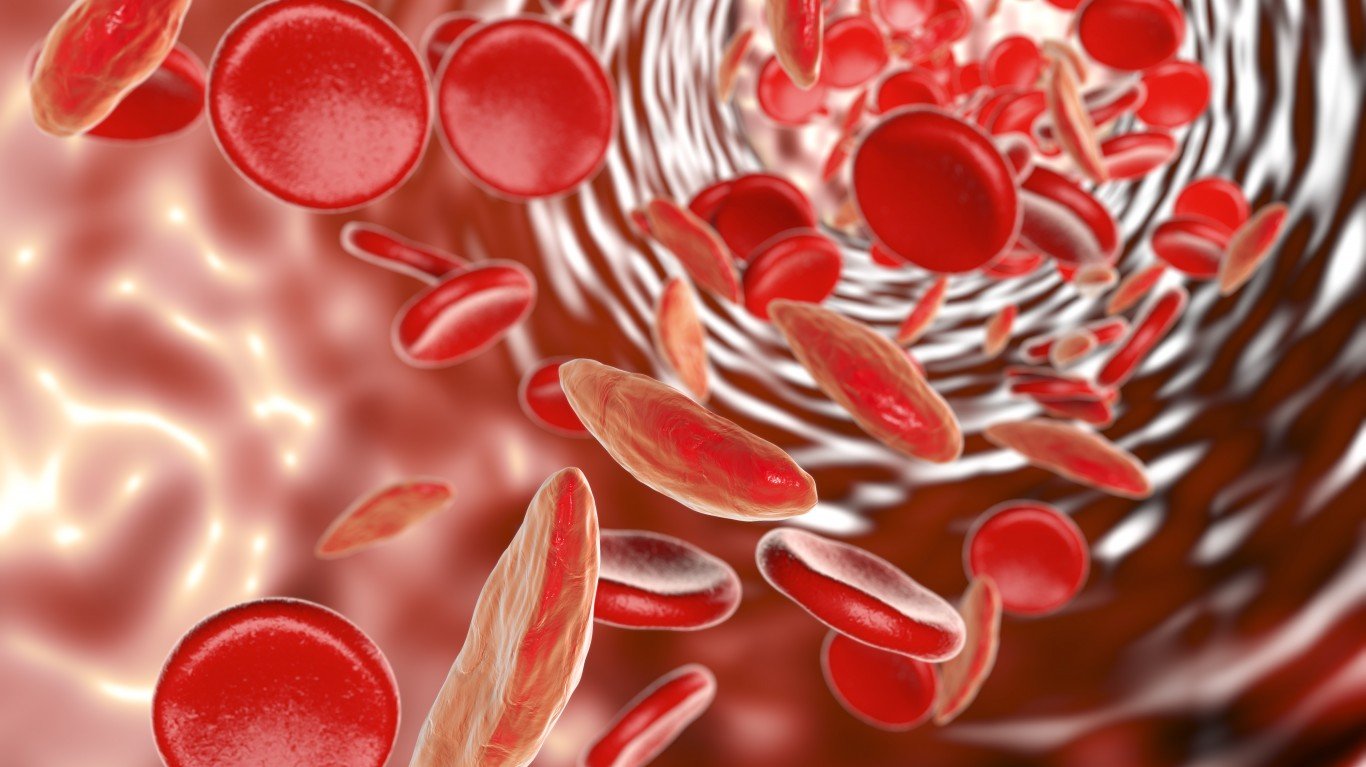
- Caffeine interferes with iron absorption
Skipping tea and coffee drinks with meals is common advice for anemic people as caffeine has been shown to interfere with the body’s absorption of iron. Hemoglobin, a protein in red blood cells that carries oxygen throughout the body, contains iron. Iron deficiency means less oxygen gets to the body’s cells, resulting in fatigue, weakness, and pale skin.
You gain weight around the waist
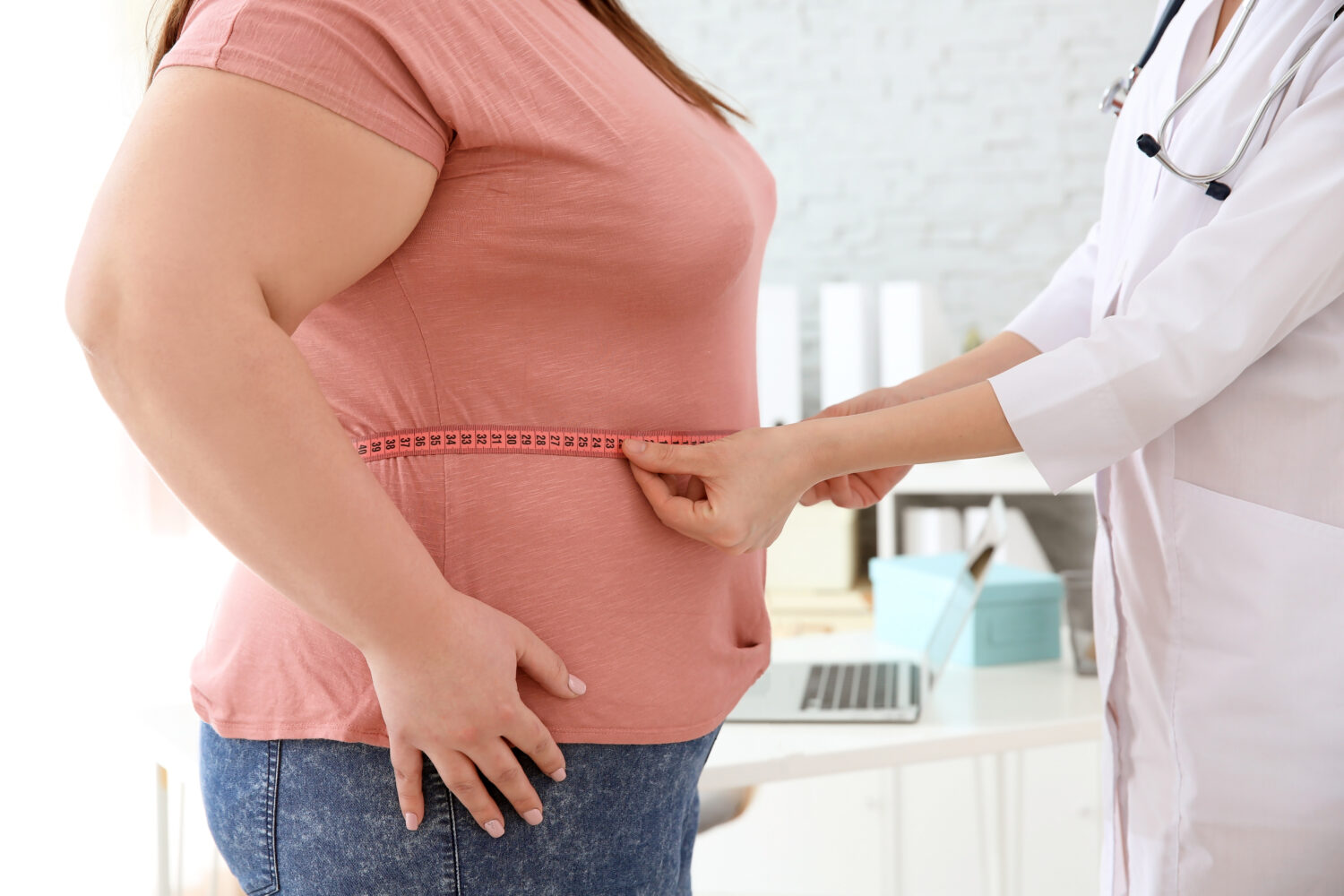
- Excessive caffeine consumption may be linked to metabolic syndrome
A study at the University of Western Australia in laboratory mice that aimed to show how coffee intake is beneficial to cardiovascular function ended up demonstrating that excessive caffeine consumption, five or six cups per day, may be linked to metabolic syndrome, which is a combination of high blood pressure, high blood sugar, excess belly fat, and high cholesterol levels. Polyphenols in the coffee, chemicals naturally found in plants, made the mice retain fat in the cells. The study said it is okay to drink coffee in moderate amounts.
You develop insulin resistance

- High consumption of caffeine may lower insulin sensitivity
It is unsure why, but research has shown that inordinate coffee drinking can lead to excessively high blood sugar levels because the body cells don’t absorb as much glucose. This is also why coffee may be a problem for diabetics as caffeine makes it harder to control blood sugar levels. (This can also be a sign you might have diabetes.)
You’re nauseous
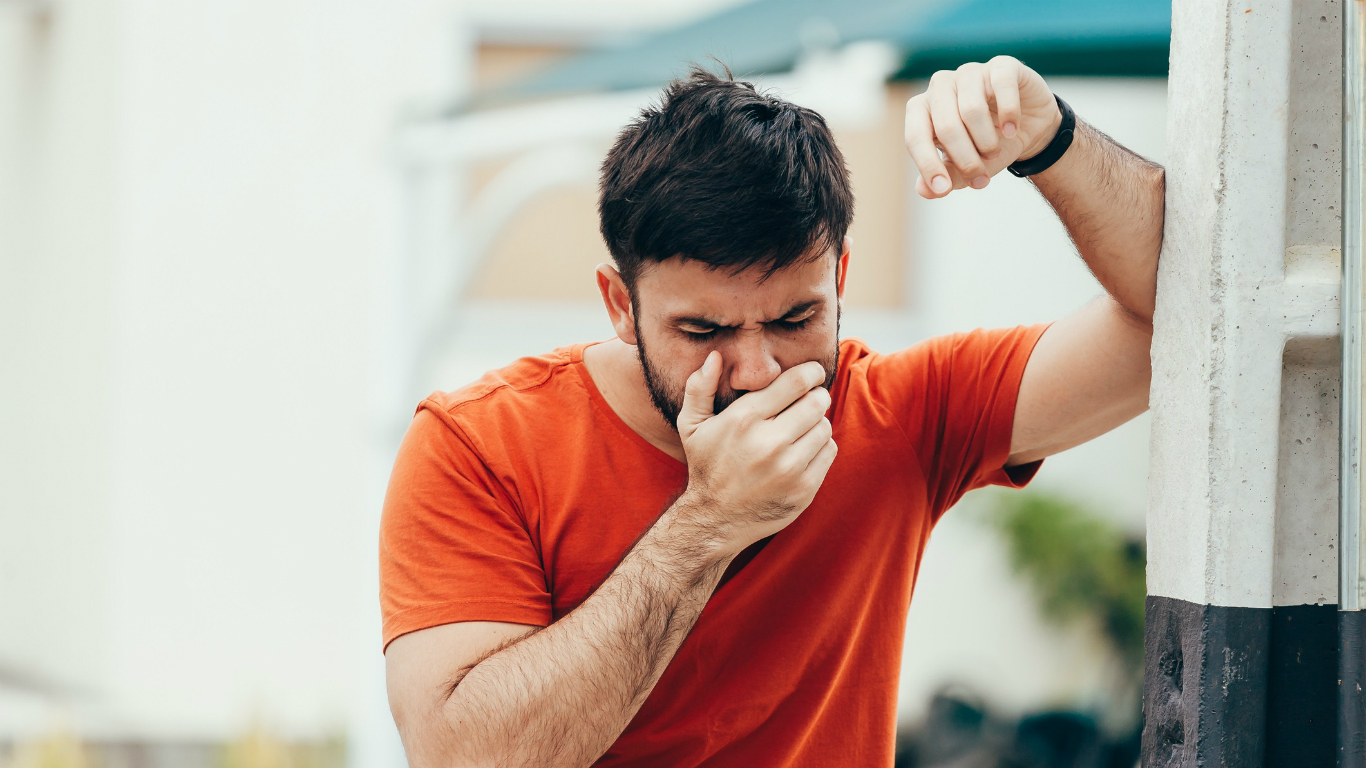
- Caffeine increases the production of stomach acid which may lead to nausea
According to the FDA, drinking too much coffee can cause nausea because caffeine increases the production of stomach acid, which can also cause stomach pain and acid reflux. Caffeine is a mental stimulant, a drug that can be addictive when consumed excessively over a long period, and nausea is not an uncommon symptom of withdrawal from caffeine, according to WebMD. The body struggles with the sudden change of not getting the amount of caffeine it is accustomed to.
You feel like fainting
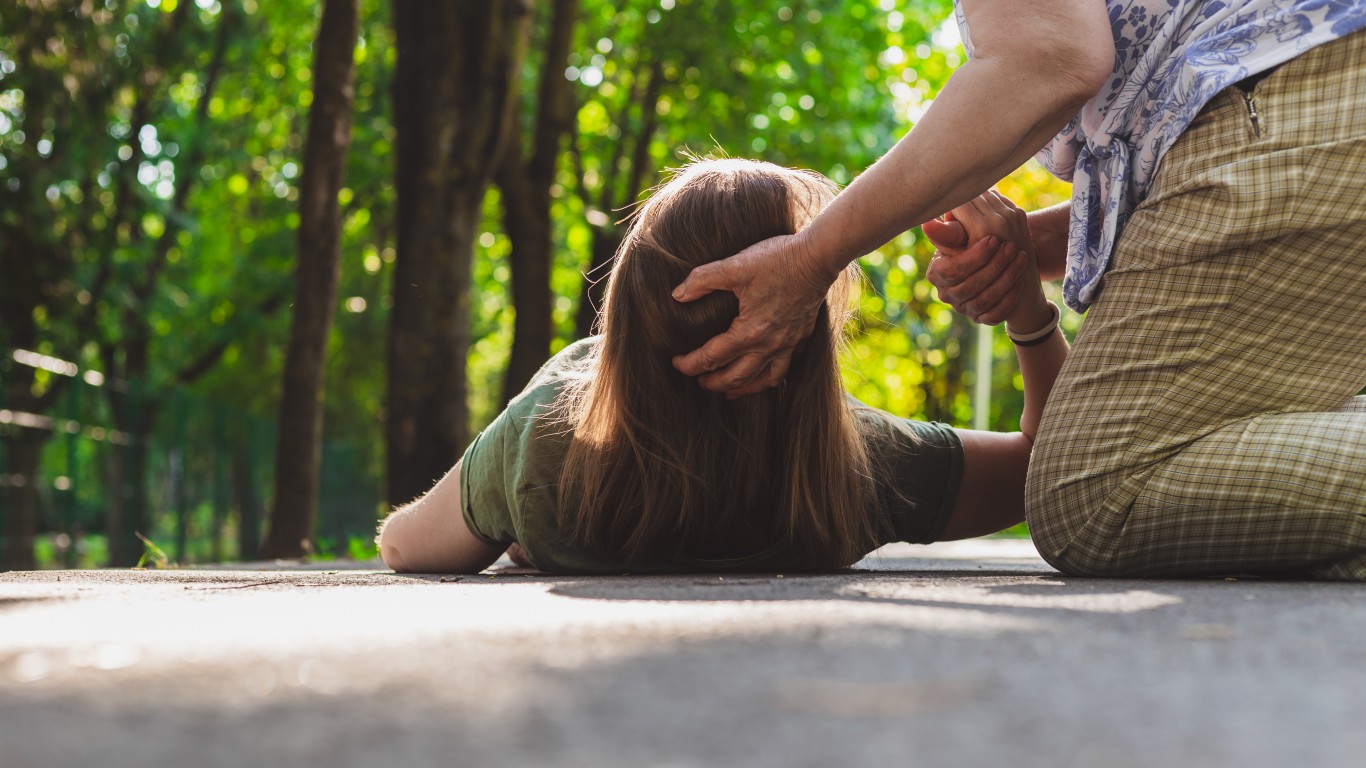
- Too much coffee may cause hypokalaemia
According to research conducted in Shinohara Hospital, Japan, drinking too much coffee every day can sometimes cause a low level of potassium in your bloodstream, known as hypokalaemia. Potassium is an electrolyte that carries signals to the nerves and muscles in the body. Common symptoms of low potassium levels are weakness and fatigue.
You sweat too much

- As a stimulant, caffeine triggers the nervous system and speeds up thermogenesis
While hyperhidrosis, or excessive sweating, is not a very common sign of drinking too much coffee, it is possible among people who have a higher sensitivity to caffeine. It triggers the nervous system and speeds up thermogenesis, the process of producing heat. The internal body temperature exceeds its set point, causing people to sweat.
